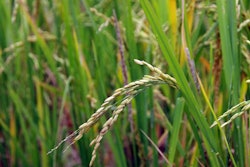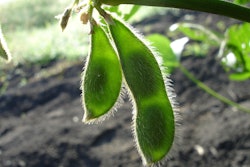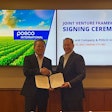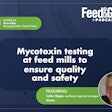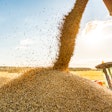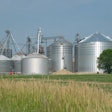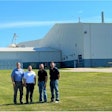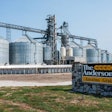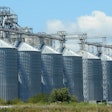
TallgrassandADMhave entered a partnership that would pave the way for Tallgrass to capture carbon dioxide (CO2) from ADM’s corn-processing complex in Columbus, NE, and transport it to Tallgrass’ Eastern Wyoming Sequestration Hub for permanent underground storage.
By using a converted natural gas pipeline for CO2transportation, Tallgrass minimizes the need for new pipeline infrastructure while enablingADM to further decarbonize its global operationsand strengthen Nebraska’s agriculture industry.
“Earlier this year, we announced an agreement that would allow us tosequester carbon from two of our biggest processing facilitiesin the U.S., and now we’re looking forward to working with Tallgrass to continue our work toward meeting our decarbonization goals," said Chris Cuddy, president of ADM’s Carbohydrate Solutions business.
Cuddy says carbon sequestration is a key way ADM is evolving its Carbohydrate Solutions business.
"[Carbon sequestration] has already allowed us to deliver the industry’s first net zero emission wheat milling footprint and will continue to enable us to advance our strategy and scale up our work to meet ever-expanding needs and make a positive impact for global populations," said Cuddy.
Tallgrass Trailblazer pipeline
Tallgrass is advancing a project to convert its Trailblazer natural gas pipeline to CO2transportation service and establish an approximately 400-mile CO2pipeline to serve as the backbone of a regional CO2transportation system.
The pipeline, which runs through Wyoming, Colorado, and Nebraska, will be capable of transporting more than 10 million tons of CO2per year for permanent sequestration and is ideally situated to transport CO2from ADM’s plant and other commercial and industrial sources to a sequestration hub in eastern Wyoming.
In preparation for this initiative, Tallgrass recently announced plans to develop a commercial-scaleCO2sequestration hubin eastern Wyoming expected to be in service in 2024.
“We’re able to repurpose existing infrastructure to create significant CO2transportation capacity without impacting natural gas service in that region," said Kyle Quackenbush, segment president at Tallgrass.
"At the same time, we are enabling customers to meet their decarbonization goals, as well as minimizing environmental and landowner impact," he continues.
"Our CO2pipeline will be capable of transporting significant additional CO2volumes to accommodate the capture, transportation, and sequestration of many other emissions sources in the region.”
Nebraska Farm Bureau support
Nebraska Farm Bureau’s farm and ranch member families have long supported pipeline projects for use as part of our nation’s important energy and carbon capture infrastructure, said Mark McHargue, president of the Nebraska Farm Bureau.
“As those who rely upon our nation’s natural resources to produce the world’s food, fiber, and fuel, Nebraska’s farmers and ranchers are also dedicated to ensuring their future use for generations.
McHargue adds, "Projects like these provide agricultural producers with options that add value and support key industries like ethanol production, while continuing to steward the land and climate families rely upon.”






